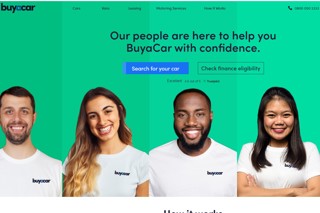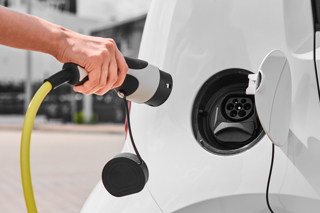A wind of change is blowing through the world of motor finance.
Disruption to business as usual is happening on several fronts – from new sources of consumer loans, changing behaviour from traditional lenders and uncertainties in the relationships between dealer, customer and lender.
The first strong sign of this came at the start of the year when at Buyacar.co.uk we noticed a jump of 50% in cash transactions on our platform.
Instead of the more typical figure of about one in five cars purchased outright, we began to see around 30% of sales completed as cash transactions.
It wasn’t a blip.
Our figures for February showed that the lost ground was not being recovered.
At the time of writing, the signs are that this could be the new norm – at least for now.
It hardly comes as a surprise that this is happening when you look at the new breed of motor loans that some High Street banks are offering direct to
consumers.
These even undercut the rates their specialist motor finance arms can offer through dealers.
Nor should we be surprised – however disappointed we may be – that the banks are behaving in this way. They are under threat from the so-called collaborative economy.
Just as hotels are feeling the pinch from Airbnb and taxi firms are struggling to compete with Uber, the traditional finance establishment faces potentially seismic disruption from new non-banking players.
Although this rarely makes headlines, very large quantities of money are now being borrowed entirely outside of the banking system.
Peer-to-peer lending, which matches consumers who have money to invest, with individuals and organisations needing a loan, has become big business.
It now carries a reassuring air of safety and respectability few would have expected a decade ago.
Look at Zopa, one of the biggest platforms, for evidence of this.
It took Zopa 10 years to arrange £1 billion-worth of loans.
But that’s the figure they now hope to achieve in 2016 alone.
Recent announcements of new products confirm their plans to take very significant slice of the consumer finance pie.
So banks need to protect their position and the obvious way to do this is to appeal directly to consumers, with ever cheaper products of their own.
Step forward the new breed of motor loan, some of which leave the rest of us standing when it comes to cheap lending.
We have been genuinely surprised by how aggressively some lenders can suddenly compete against their dealer partners.
Whether you’re selling cars in the traditional way or through an online-only platform the problem is the same and the ramifications potentially go further than just a reduction in the F&I profits of motor retailers.
It's well known that dealers will often buy a car, not because of the potential profit on the metal – of which there may be little or none – but for the finance commission opportunity.
When that opportunity is no longer reliable, what will happen?
It does not seem beyond the realms of possibility that margin will have to be grafted back onto the sticker price, with the ultimate effect of pushing car prices up.
Or will the opposite happen? Might demand now begin to reduce for some of those cars which once represented a great F&I opportunity, leading to faster depreciation?
More uncertainty surrounds the relationship between lender, dealer and customer with this emerging picture.
The dealer is critical as the source of the bank’s income, but not rewarded.
And there are complications that can also arise from a three-way relationship.
If the responsibility to the customer still lies with the dealer, what are their obligations to the lender? Is the dealer simply reduced to the role of car deliverer and whipping boy – for both consumer and lender – if something goes wrong?
With less upside for the dealer, their relationship with the lender is thrown into question in a way we have not seen for a long time.
This kind of disruption is, of course, part and parcel of commercial life and no sensible business ever expects market dynamics to remain static.
The most worrying disruption comes when the playing field is suddenly tilted by a new player – in this case, peer-to-peer lenders, and the ripple effect reaches further than even they intended.
Author: Austin Collins (pictured), managing director, Buyacar.co.uk


















Login to comment
Comments
No comments have been made yet.